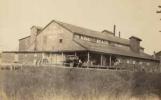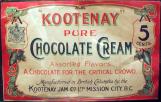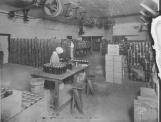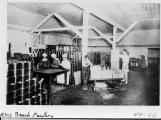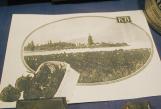15
The King Beach Jam and Chocolate factory.16
KingBeach printblock image. Print blocks were used for printing the labels for the products.1920
Mission Museum
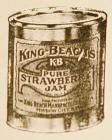
17
Mr. King, a chocolatier, had proposed a partnership: the factory would produce jam in the summer and chocolates in the winter.19
Local milk was used in the manufacture of chocolate bars, as well as the popular "big puff chocolate cherry". This particular chocolate contained a generous portion of brandy in the center, which endeared it to the men folk.21
Wartime demand led to great business, and soon the newly named King Beach factory was employing fifty women at two dollars each per day.23
The twenties were a wonderfully busy time for the fruit processing plants. Local farmers were more productive than ever, bringing in plenty of raw goods for the canneries. A 1924 order from Britain for $100,000 worth of canned fruits and jams set the farmers in a frenzy of new plantings.In June 1927, the Farmers' canning plant, (formerly Ashcroft Canners and later the Canadian Canners in 1931) was at full capacity, processing 400 crates of strawberries daily. One Hundred and eighty-nine men and women worked night and day shifts at the plant.
